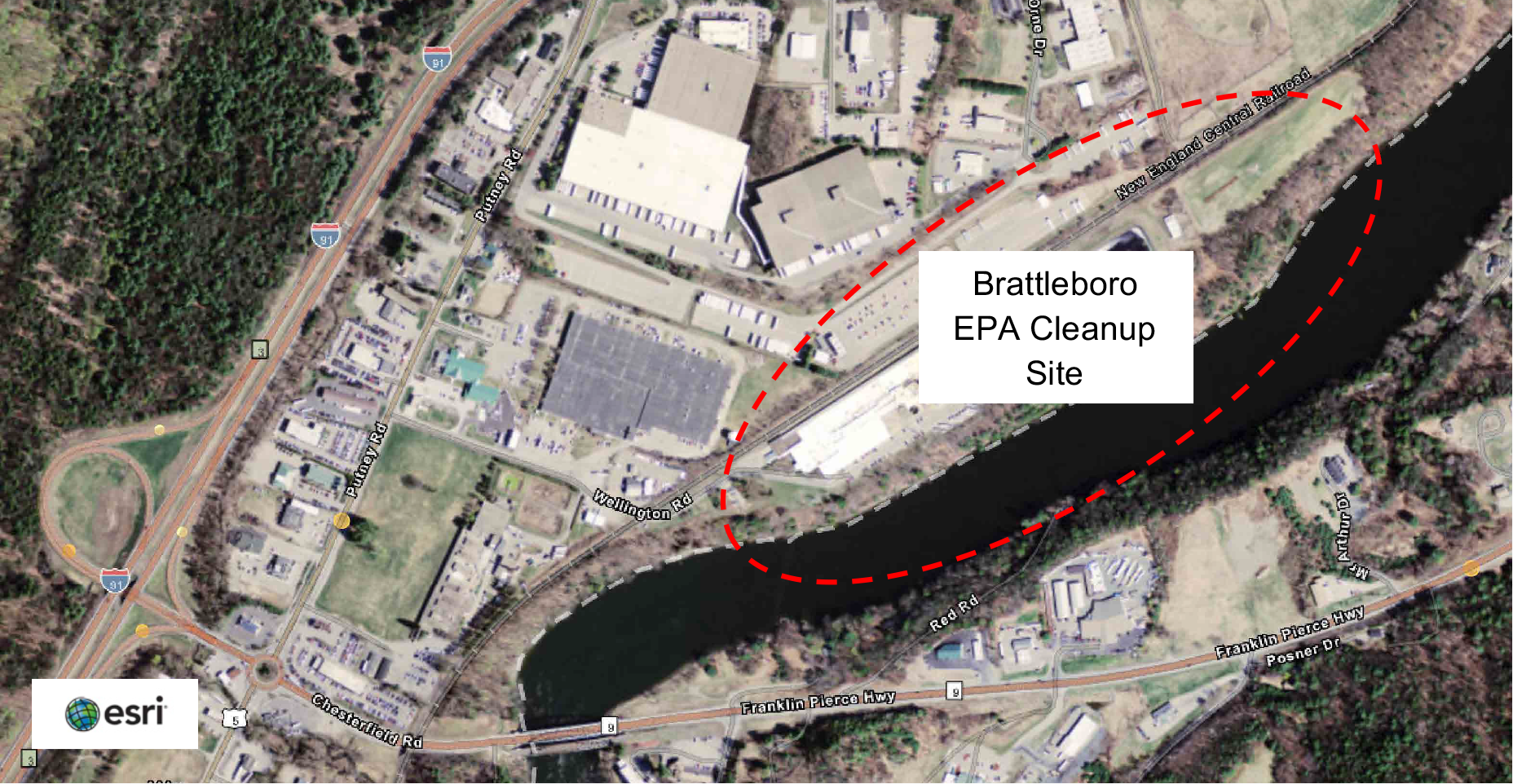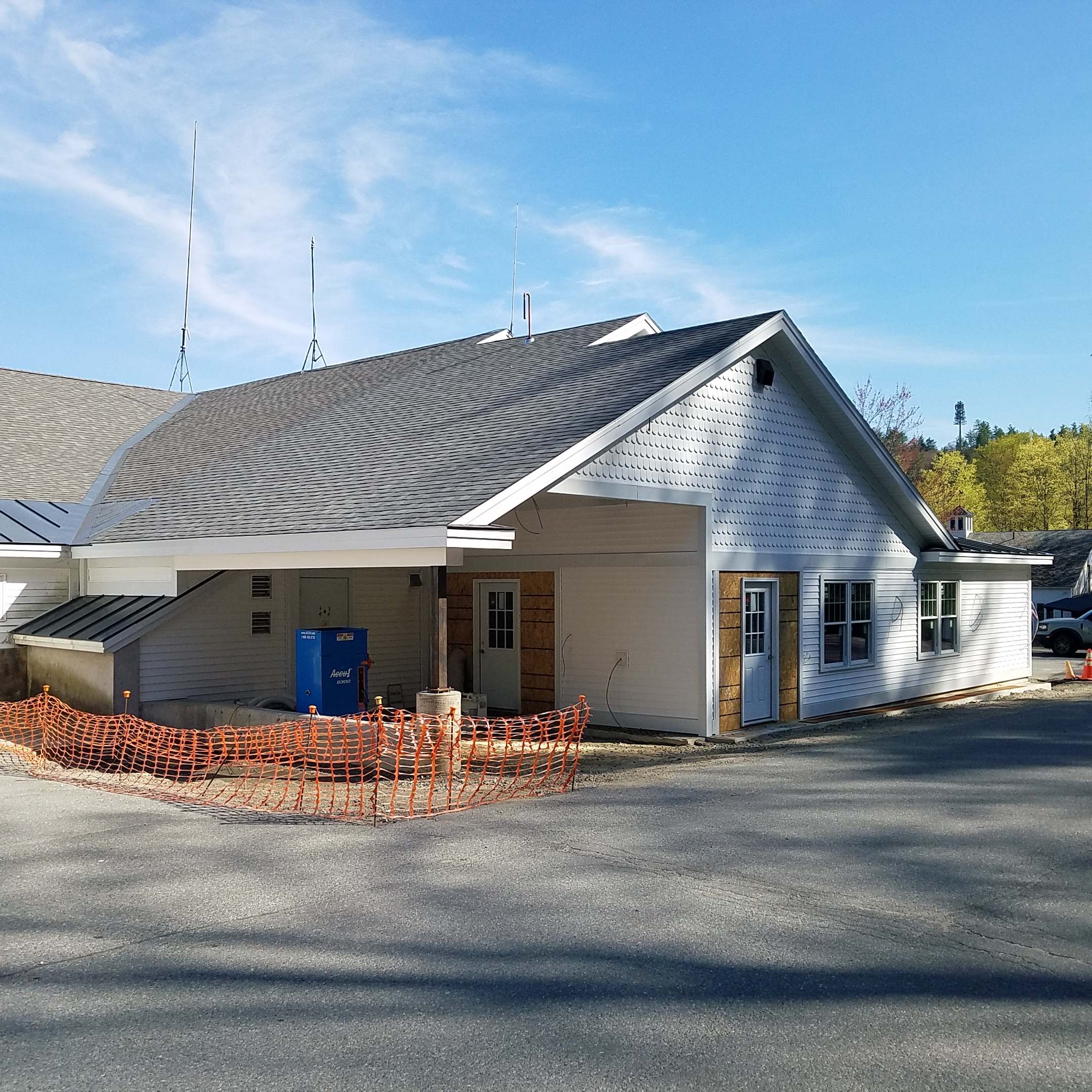Long Falls Paperboard, the company that this year bought the former Neenah Paper Inc. plant in Brattleboro, is using a $1 million federal grant to study using wood biomass instead of the natural gas that is delivered to the factory in trucks every day.
Brattleboro Development Credit Corp. (BDCC) will use the $1 million grant from the Northern Border Regional Commission to study the feasibility of building a biomass co-generation plant over the next 18 months, said Adam Grinold, executive director of the nonprofit economic development organization.
BDCC – which owns the plant and leases it to Long Falls Paperboard (LFP) — has worked very closely with LFP since before the Washington-based company purchased the business and equipment in January. Neenah announced last year that it planned to close and liquidate the paperboard plant, putting 100 people out of work. BDCC worked with LFP to obtain loans from the Vermont Economic Development Authority and People’s United Bank; secured training and other grants from the state; and worked with a variety of other local entities to help LFP lease the property and keep the business running.
For the biomass plant project, LFP will probably need to borrow between $14 million and $22 million, Grinold said. “They knew they needed to address their utility costs coming into this deal,” said Grinold. “They are one of the few firms in southern Vermont that truck in natural gas.”
Biomass cogeneration is the process of obtaining heat and electricity from a fuel at the same time. Most of the pulp and paper mills in the region, including five in Maine and two in New York, use woody biomass to supply some or all of their energy needs, said Charlie Niebling, a forestry consultant in Concord, New Hampshire, who helped LFP with its grant proposal to the Northern Borders Regional Commission. Woody biomass is the wood products that are left behind in logging operations after the marketable wood has been removed.
Vermont has two large biomass plants that produce electricity: a 22-megawatt plant in Ryegate that is fueled by wood chips and owned by Suez Energy in Texas, and the 50-megawatt McNeil Generating Station wood-fired power plant, owned by Burlington Electric, Green Mountain Power and Vermont Public Power Supply Authority.
LFP is considering a 5-megawatt plant, said Niebling. A score of buildings in Vermont, such as schools, are also heated by wood.
Niebling said the LFP plant would provide a needed market for woody biomass.
“To have a good market for a true low-grade byproduct can be a valuable thing for landowners in that area,” Niebling said.
Several local colleges and other public institutions have built biomass plants or proposed them in the last several years. An existing plant at Middlebury and a proposed plant at Dartmouth have been criticized by environmentalists who say they pollute in much the same way that a fossil fuel-fired plant does.
Niebling said that the Dartmouth scientists’ arguments were based on utility-scale power generation. “They made assumptions about the carbon profile of Dartmouth’s project that are not factual,” he said. “If the fuel is sourced locally and used efficiently, it’s going to have a pretty favorable carbon profile.”
He added that the woody biomass would displace 3.5 million gallons of oil burned at Dartmouth every year. “I think a lot of anti-biomass advocacy is really ultimately borne out of concern, angst, and fear over cutting trees for any purpose,” he said. “And much of it comes from people who use trees every day.”
As for the proposed biomass plant at LFP, Niebling said the facility will have very sophisticated emission controls. “Peoples’ perception of wood emissions is colored by their neighbor’s old smoke-belching wood boiler,” he said. But the substance arising from the smokestack in Brattleboro, he said, will be steam, not particulate matter. “They’ll need a permit from the state of Vermont, and the state will be in a position to insist on certain controls,” he said.
The Northern Border Regional Commission receives annual appropriations from Congress to work on economic and community in economically struggling counties of Maine, New Hampshire, Vermont and New York. Last year, Congress directed the group to address areas of need in the forest industry, said Program Director Christine Frost.
“Where traditionally we were funding projects at a municipal level, we were trying to get at, ‘How do we a larger impact across the four states?’” Frost said. “In the biomass facility, they would be looking at drawing from a 50-mile radius for that low-grade wood in order to power that plant. In addition, the actual pulp comes from the state of Maine. It really was more of an interstate impact.”



